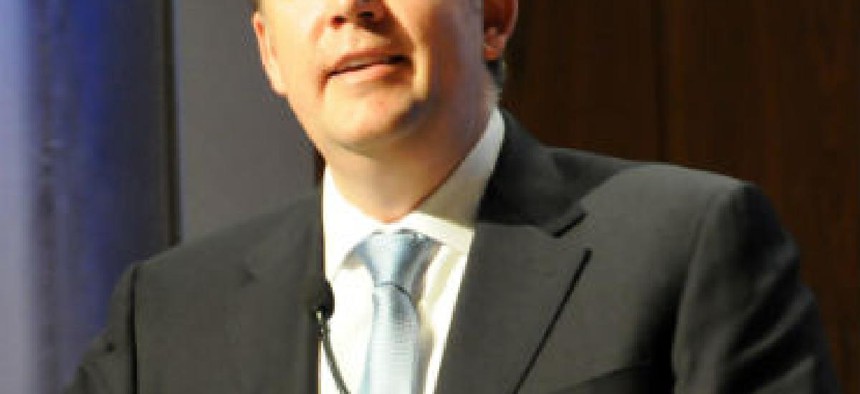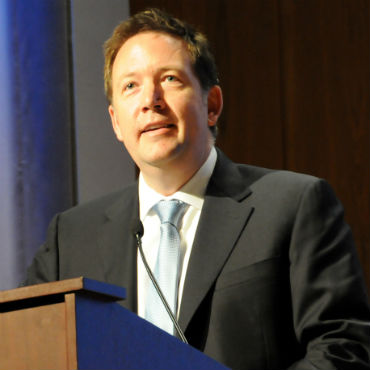VanRoekel: Tech investments in Ebola fight could pay long-term dividends

USAID’s chief innovation officer says IT "plays a foundational and fundamental role" in U.S. assistance in West Africa -- and can help prepare for the next catastrophic epidemic as well.

Former federal CIO Steve VanRoekel now coordinates USAID's efforts to fight Ebola in West Africa.
The U.S. government has an opportunity to help Liberia and other West African nations battling Ebola outbreaks prepare for the next catastrophic epidemic with technological tools, Steve VanRoekel said Dec. 3. Right now, however, tech is only part of the story.
Liberia lacks the mobile communications infrastructure to support the kind of crisis mapping and mobile health applications that could be brought used to gather information and deliver messages to at-risk communities. According to VanRoekel -- the former federal CIO who is now the U.S. Agency for International Development's chief innovation officer and the coordinator of U.S. efforts to fight Ebola in Africa -- about 75-80 percent of Liberia's territory is not covered by any cellular service.
And there are technical and regulatory challenges to using the connectivity that is there. Foreign network operators have evacuated many engineering personnel, making maintenance difficult. Liberia's telecom regulator does not permit carriers to share cell towers, so coverage can be spotty in towns and along highways that do have mobile infrastructure.
"There haven't been major gains in building new cellular infrastructure or things like that, because that's a longer lead thing," VanRoekel said. "The things that we've done [include] getting data harmonized. And so building a nexus point through the government's ministry of health to be the point that all the data feeds into, gets processed, and gets disseminated."
The challenge is that patients suspected of having Ebola might be tested multiple times by local health authorities, a non-governmental organization, and a representative of the U.S. effort. "You get all this weird, misalignment of data," VanRoekel said. "I went out with a couple of missions -- one was to look at data harmonization and get that to happen. Right now it's going to be about how do we take that as a best practice and scale that to the region. We don't have as much visibility in Sierra Leone and Guinea."
VanRoekel spoke with reporters after a roundtable on responding to global health crises hosted by Intel and the Information Technology Industry Council.
The administration's Fighting Ebola challenge has generated more than 1,500 suggestions for making improved personal protective equipment (PPE) that is safer, more durable and more comfortable to wear in the heat of West Africa. "If we can get infection rates down from innovating on PPE, you can get more care workers to go in," VanRoekel said.
Another part of the challenge is rapid diagnostics, so that suspected Ebola sufferers do not have to wait or travel to get test results. VanRoekel is working with government agencies and challenge participants to decide how to bring in promising diagnostic technology. There is "a real opportunity to get test units into the field. ... It feels like an area that's months, not years away," VanRoekel said.
Right now, he said, the challenges and opportunities are "deeply human," and are about building trust with local partners and populations. If Ebola sufferers do not trust health workers, they might not be willing to share information about their personal contacts, so those individuals can be located and tested. "We have to think about how tech and innovation plays a complement to these things," VanRoekel said. "I do believe that technology plays a foundational and fundamental role, but it has to be delivered in the context of these challenges."
It's also key to build longer-term capacity to use technology among local health and government workers. Liberians working on the Ebola response are "really worried about all that technology that's being brought in being either shelved or being taken away when this crisis is over," VanRoekel said. "So [we're] really thinking about how do we prevent the next Ebola by solving this one in the right way."
NEXT STORY: Cloudy with a chance of murky



